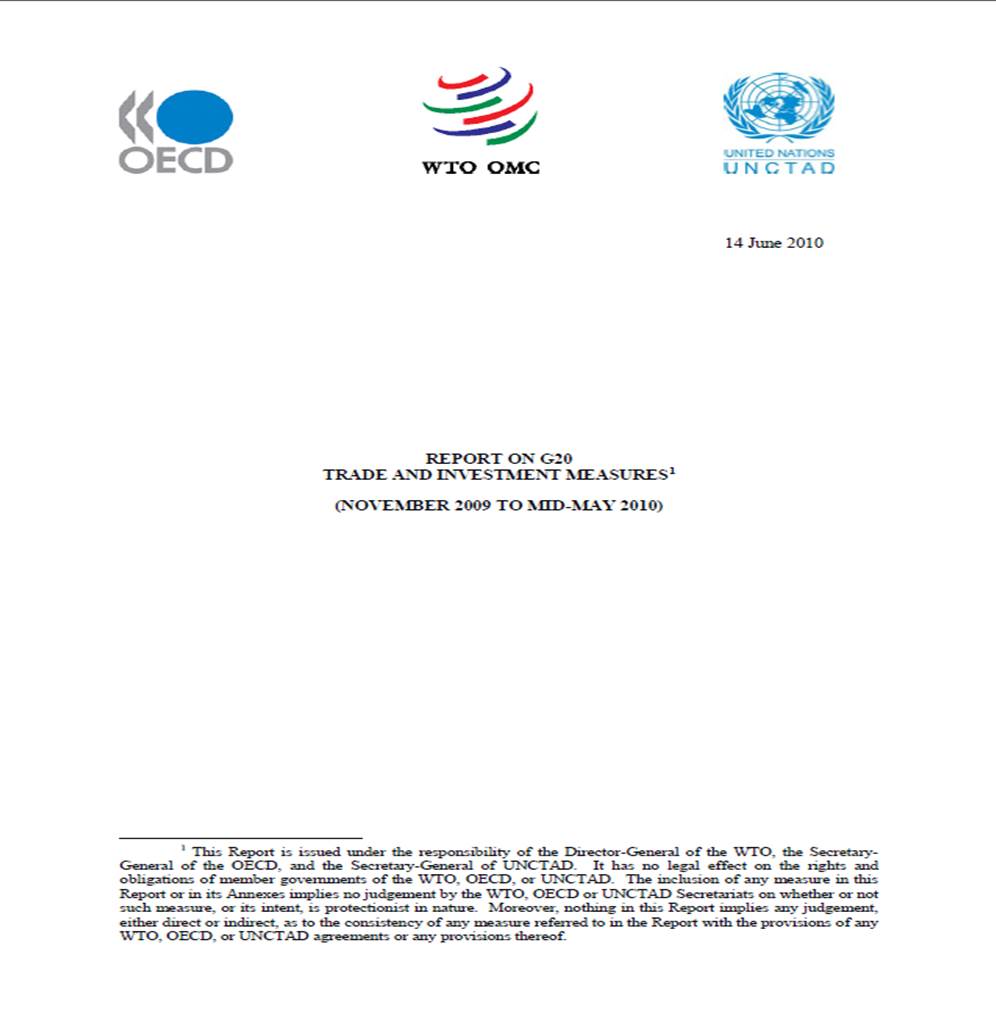Third Report on G20 Investment Measures
At the London and Pittsburgh Summits, G20 Leaders have committed to forego protectionism and have requested public reports on their adherence to this commitment.The present document is the third report on investment and investment-related measures in response to this mandate. It has been prepared jointly by the OECD and UNCTAD Secretariats and covers investment and investment-related measures taken between November 2009 and May 2010.
This inventory of investment measures shows that, by and large, G20 governments have continued to honour their commitment, taken at the Washington, London and Pittsburgh summits, to refrain from raising new barriers to international investment. Most of the general investment policy measures (those not geared to safeguarding national security or responding to the crisis) pointed toward greater openness and transparency for foreign investors. G20 Leaders are to be commended for resisting protectionist pressures, thereby contributing to a return to growth and boosting investor confidence.
Managing the investment impacts of emergency measures taken in response to the crisis still constitutes a great challenge for G20 governments. Although these measures are not, on the whole, overtly discriminatory toward foreign investors, they pose serious threats to market competition in general and to competition operating through international investment in particular.
Some G20 countries have moved into a new phase of the administration of their emergency measures and programmes. This includes the dismantling of some emergency schemes, the unwinding of advantages provided to individual companies under emergency schemes, but also the continuation and expansion of programmes and the introduction of schemes for new sectors.
G20 Leaders should ensure that such programmes are wound down at an appropriate pace and that the crisis is not used as a pretext to discriminate directly or indirectly against certain investors, including foreign investors.
Three areas require G20 Leaders’ particular attention:
- Ensuring that assets acquired as a legacy of crisis-related schemes are disposed of in a timely, non-discriminatory and open manner. Governments have begun the process of unwinding their financial stakes acquired in companies participating in emergency schemes. They also continue to hold shares or loans in and to extend guarantees for tens of thousands of companies. Such positions, if held too long, can create confusion between governments’ regulatory and ownership roles and can disrupt competitive processes in product and capital markets.
- Winding down emergency schemes. Governments continue to operate some schemes and to extend benefits to new firms. Such schemes should be scaled back as quickly as economic conditions permit so as to send a strong message to domestic and foreign investors that they henceforth are expected to operate without State aid on a commercial basis in the market place.
- Making progress on fundamental reform so as to restore confidence in the financial sector and the market economy. In addition to the obvious benefits of such fundamental reform (e.g. in financial and prudential regulation and in monetary and fiscal institutions) for economies as awhole, it will, by building trust internationally, make it easier for countries to preserve and extend an open policy framework for international capital flows.
G20 Leaders’ commitment to resist protectionism and promote global investment expires at the end of 2010. Protectionist pressures will persist as long as the impact and aftershocks of the crisis weigh on the recovery. Openness to international investment is a precondition for strong global economy, job creation, and innovation. Therefore, G20 Leaders should extend their commitment to resist protectionism and promote global investment to reassure investors.
















